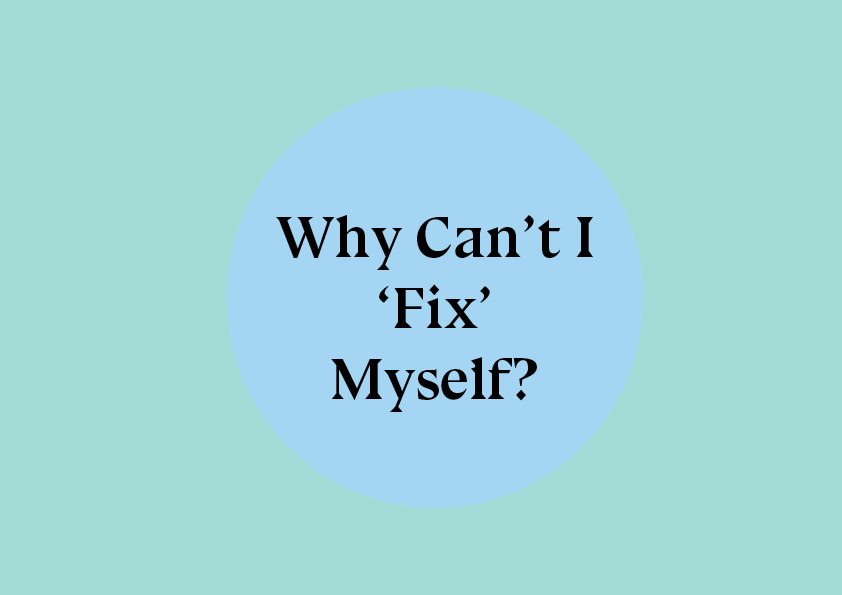In a world where quick fixes and instant gratification are often sought after solutions to deep-seated issues, the question of “How do I fix myself?” emerges as a poignant reflection of the internal struggle many of us face. This question isn’t merely about seeking temporary remedies but a profound journey towards self-improvement and living a fulfilling life.
The quest for self-improvement is not a path laden with easy shortcuts or magical cures. It demands commitment, hard work, and a willingness to engage in a continuous process of self-discovery and growth. The essence of personal development lies in embracing the journey of evolving oneself, encompassing every aspect of your being—physical, mental, emotional, and spiritual.
The Foundation of Self-Improvement
To embark on this transformative journey, it’s crucial to return to the foundational principles of personal development. These principles serve as the bedrock upon which you can build a better version of yourself. They are timeless, universal, and applicable to various facets of life, be it personal, professional, or relational.
Eat Right
Nutrition plays a pivotal role in shaping our physical and mental well-being. A balanced diet rich in nutrients fuels the body, enhances cognitive function, and stabilizes emotions. Making conscious food choices is the first step toward self-care and respect for your body.
Exercise Regularly
Physical activity is not just about maintaining a healthy weight; it’s a powerful stimulant for mental health, releasing endorphins that boost mood and energy levels. Regular exercise fosters resilience, discipline, and a sense of accomplishment.
Embrace Nature
The healing power of nature is profound. Fresh air and sunlight not only rejuvenate the body but also bring clarity and peace to the mind. Spending time outdoors is a simple yet effective way to reduce stress, enhance mood, and reconnect with oneself.
Cultivate Hobbies
Engaging in hobbies and interests sparks joy, creativity, and a sense of purpose. Whether it’s art, music, gardening, or any other pursuit, hobbies provide an outlet for self-expression and personal growth.
Read Widely
Books are gateways to knowledge, wisdom, and inspiration. They expand our perspectives, challenge our thoughts, and enrich our understanding of the world and ourselves. A commitment to lifelong learning through reading is a commitment to personal evolution.
Develop New Skills
Learning new skills pushes us out of our comfort zones, builds confidence, and opens doors to new opportunities. The process of mastering new abilities demonstrates the incredible potential for growth and adaptability inherent in all of us.
Challenge Yourself
Growth occurs at the edge of our comfort zones. Setting and striving for challenging goals fosters resilience, perseverance, and a sense of achievement. Challenges help us discover our strengths and overcome limitations.
Plan and Execute
Success in any area of life requires thoughtful planning and relentless execution. Setting clear goals, devising actionable plans, and following through with dedication reflect a disciplined approach to personal development.
Learn from Mistakes
Mistakes are inevitable on the path to self-improvement. Rather than viewing them as failures, embrace them as valuable learning opportunities. Reflecting on and learning from mistakes is crucial for growth and progress.
Strive for Progress
The goal of personal development is not perfection but progress. Celebrate small victories, acknowledge growth, and continuously strive to be a better version of yourself each day.
Work Hard and Sweat
Effort and perseverance are indispensable. The journey toward self-improvement demands hard work, dedication, and the resilience to push through challenges.
The Role of Personal Responsibility
At the heart of the question “How do I fix myself?” lies the principle of personal responsibility. The journey toward self-improvement is deeply personal and cannot be outsourced. It is about taking ownership of your life, your choices, and your actions. Recognizing that you have the power and the responsibility to shape your destiny is the first step towards meaningful change.
Too often, individuals seek external validation or solutions, hoping for someone else to provide the answers or take the blame for their circumstances. However, true transformation begins with the acknowledgment that you are the architect of your life. Embracing personal responsibility means committing to the hard work of self-improvement, making conscious choices, and taking actionable steps towards your goals.
Moving Beyond the Basics
While the foundational principles of personal development are crucial, moving beyond the basics involves a deeper exploration of oneself. It requires introspection, self-awareness, and an openness to change. Understanding your values, beliefs, and emotional patterns is essential for breaking free from self-imposed limitations and fostering genuine growth.
As you embark on this journey, remember that self-improvement is not a destination but a continuous process. It is about evolving, adapting, and striving for a life that is aligned with your true self. Embrace the journey with patience, compassion, and a relentless spirit of self-discovery.
Conclusion
The question “How do I fix myself?” is a call to action—a prompt to engage in the lifelong journey of personal development. By returning to the foundational principles and embracing the path of self-improvement with dedication and personal responsibility, you can transform your life. Remember, the power to change lies within you. It’s about making a conscious decision to invest in yourself, to grow, and to live your best life possible.
